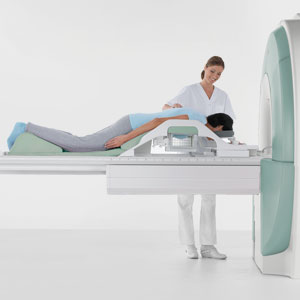Breast MRI Services in Lakeland, FL
While mammography remains the gold standard in breast imaging, it may miss 15-20% of cancers, particularly in women with dense breast tissue which can obscure an underlying tumor. Breast MRI at Women’s Imaging Center in Lakeland, Florida is capable of detecting smaller breast lesions sometimes missed by mammography.
Women who are considered “high risk” are advised to have a breast MRI along with an annual mammogram, starting at age 30, and continuing as long as she is in good health. Click here to take a breast cancer risk assessment »
Breast MRI is also an excellent tool to evaluate and clarify mammogram abnormalities. It is also used to stage cancer and can be especially valuable in pre-surgical planning. If a woman is pregnant or has received radiation therapy to the chest for another type of cancer, she may also choose to have a breast MRI because it does not expose her to any ionizing radiation.
Breast MRI is a non-invasive and painless test that uses a highly sophisticated magnet, electrical impulses, and a computer to create detailed images of the breast which, just like a digital mammogram, can be studied from different angles.
The doctors at Women’s Imaging Center specialize in women’s imaging and breast MRI and have undertaken fellowship training in women’s imaging—an additional 1-2 years. This higher degree of specialty can make a real difference when it comes to the quality of your test results. Call the Women’s Imaging Center at 863-688-2334 today to schedule your breast MRI.

